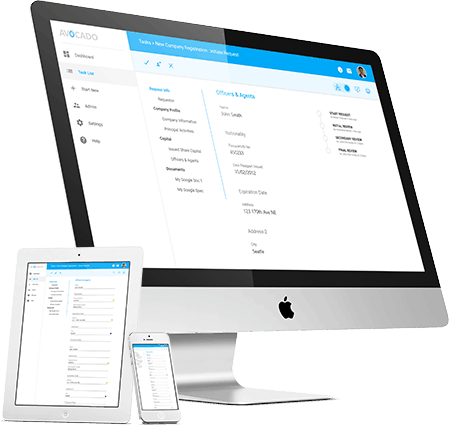In the last few months, the Singapore government has implemented a series of legislative changes, signed new international agreements, deployed new online services, and introduced new incentives for entrepreneurs — all with the aim of improving the ease of doing business in the country. This post provides an overview of the developments and should be of interest to anyone pursuing commercial activities in Singapore.
Updates to Company Operating Regulations
‘Variable Capital Company’ Approved as a New Corporate Structure for Investment Funds
The MAS (Monetary Authority of Singapore) and the ACRA (Accounting and Corporate Regulatory Authority) launched the Variable Capital Companies (VCC) Framework on January 15, 2020. The new structure will allow fund managers to operate a number of mutual funds (each holding different assets) under the umbrella of a single corporate entity. The move will reduce compliance costs and provide operational flexibility to fund managers. As Singapore revs up its engines to attract financial firms from Hong Kong and other financial centers, this is a very welcome development. A number of well-known firms has already announced plans to re-domicile their overseas funds as VCCs in Singapore.
To further sweeten the pie, the MAS has created a VCC Grant Scheme. The Scheme will help defray costs of incorporating a VCC by co-funding up to 70% of eligible expenses paid to Singapore-based service providers. The grant is capped at S$150,000 for each application, with a maximum of three VCCs per fund manager. Please contact us if you are interested in exploring the new structure.
New Digital Bank Licences Introduced
On August 29, 2019, the Monetary Authority of Singapore introduced a plan to grant new digital bank licence. Digital full banks will be allowed to take deposits and provide a wide range of financial services to both retail and non-retail customers, while digital wholesale banks will be permitted to serve SMEs and other non-retail segments. MAS plans to award up to two full licenses and up to three digital wholesale permits. The competition is open to both local and foreign applicants. As of December 31, 2019, MAS had received 21 applications for digital bank licences. MAS will announce the winners by June, 2020 and the firms are expected to start operation by mid-2021.
This is a welcome development for Singapore-based companies who will be able to reduce cost and improve efficiency through these new digital services.
Singapore Exchange Cancels Compulsory Quarterly Reporting for Most Listed Companies
Singapore Exchange Regulation (SGX RegCo) has announced that quarterly reporting (QR) will no longer be required for listed companies unless they are associated with higher risks. This change takes effect from February 7, 2020. The new approach will replace the current quarterly reporting requirement for companies with a minimum market capitalisation of S$75 million.
From now on, a listed firm must undertake QR only if it does not have clean audit opinions or faces financial or regulatory compliance issues. In all other cases, companies are required to file only semi-annual reporting. The new risk-based approach to reporting brings Singapore on parity with other global markets, including those in Hong Kong, Australia, the U.K. and other E.U. countries.
These changes will reduce the regulatory and compliance burden for most Singapore-based firms.
Tax Changes
GST Payable on Overseas Digital Services
From January 1, 2020, overseas digital service providers must register for GST in Singapore and charge this tax on sales of digital services to Singapore individuals and companies. Before this date, digital services provided by local firms were subject to GST, while those provided from overseas were not. For the purpose of this legislation, you are considered to be a digital service provider if you deliver services over the internet or a private electronic network that require minimal or no human intervention and would be impossible without the use of information technology (for example, mobile apps, office suites, e-books, online accounting software, etc.).
Once again, this move is designed to help Singapore-based firms by creating parity between them and their foreign competitors when they serve Singapore-based customers.
Several Foreign Tax Agreements Amended
During 2019, Singapore updated several Double Taxation Agreements (DTA), which simplify tax obligations for companies that operate in more than one country. The changes included agreements with the following countries:
- Republic of Korea. The updated DTA was signed on May 13 and entered into force on December 31. It enhances cross-border trade and investment between the countries by providing new incentives. Among other changes, the update lowers the withholding tax rate for royalties and expands the scope of the capital gains tax exemption.
- Germany. A Protocol amending the current DTA was signed on December 9. The changes are designed to enhance cross-border trade and investments by lowering withholding tax rates on income flows arising from cross-border business activities. The updated treaty will become effective after ratification by both countries.
- Ukraine. The two states signed a Protocol changing the current DTA on August 6. It amends the Exchange of Information Article of the DTA to bring it in line with existing internationally-agreed standard on exchange of information upon request. The DTA will also become valid after ratification by the two countries.
New Foreign Tax Agreements Concluded
Singapore concluded discussions on new tax treaties with four countries. The new DTAs follow the standard structure and aim to reduce taxes for companies that operate in Singapore and these countries. They will enhance Singapore’s cross-border trade and investment with these states. The DTAs clarify and limit the taxing rights of countries on income flows arising from cross-border business activities in order to minimise double taxation. The four countries include:
- Tunisia. The DThttps://www.iras.gov.sg/media/docs/default-source/dtas/singapore-tunisia-dta-(ratified)(mli)(1-nov-2023).pdf?sfvrsn=9da1d535_6A between the countries was signed on February 27, 2018, and entered into force on December 17, 2019.
- Ghana. The countries concluded the DTA on March 31, 2017, and it became effective on April 12, 2019.
- Turkmenistan. The DTA was signed on August 28, 2019, and will enter into force after ratification by both countries.
- Armenia. The countries concluded the DTA on July 8, 2019, and it will become valid after ratification.
New Guidelines for Legislative Compliance
ACRA Issues Updated Financial Reporting Practice Guidance
The Accounting and Corporate Regulatory Authority (ACRA) of Singapore runs the Financial Reporting Surveillance Programme. One of its aims is to analyze the financial statements of Singapore-incorporated companies and evaluate their compliance with the prescribed accounting standards in Singapore. As a result of the review conducted by this programme, updated Practice Guidance was issued on November 21, 2019. It identifies three financial reporting areas that require closer attention by directors when approving financial statements. The three areas include — leases, tax, revenue and financial instruments; impairment assessments; and business acquisitions.
MAS Updates Guidelines on Licensing, Registration and Conduct of Business for Fund Management Companies
On October 25, 2019, the Monetary Authority of Singapore issued updated guidelines and FAQs on Licensing, Registration and Conduct of Business for Fund Management Companies. This document describes eligibility criteria and application procedures for licensed fund management companies (LFMCs), venture capital fund managers (VCFMs), and registered fund management companies (RFMCs). It also includes ongoing business conduct requirements for LFMCs, VCFMs and RFMCs, including requirements for custody, valuation and reporting, conflicts of interest mitigation, disclosure and submission of periodic returns.
New MAS Guidelines for Determining a Financial Advisory Service
On July 10, 2019, the Monetary Authority of Singapore introduced guidelines on applying a test in determining what constitutes a provision of financial advisory services under the Financial Advisers Act. The test provides a two-stage procedure. First, determine whether a particular activity constitutes providing financial advice, and second, identify whether the person is carrying on business in performing such activity.
Government Services Innovations
Legal Help for Payment Services Providers
In November 2019, the Monetary Authority of Singapore and the Singapore Academy of Law launched a new initiative to help payment services providers seek legal advice relating to the Payment Services Act. The Payments Regulatory Evaluation Programme (PREP) connects the payments industry with legal service providers via a streamlined process. It includes an established list of legal advisers that can provide such advice.
Simpler Application for Licences
A new GoBusiness Licensing portal was launched on October 31, 2019. After you successfully register your new business in BizFile+, you will be guided to the new portal to apply for the licences required to operate the company. The new project, which replaces the old LicenceOne portal, also features a Guided Journey feature for entrepreneurs who want to operate a business in the food and beverage sector. Please contact your CorporateServices.com relationship manager if you need help with obtaining license through the new portal.
About CorporateServices.com
Headquartered in Singapore, CorporateServices.com, empowers global entrepreneurs with information and tools necessary to discover Singapore as a destination for launching or relocating their startup venture and offers a complete range of company incorporation, immigration, accounting, tax filing, and compliance services in Singapore. The company combines a cutting-edge online platform with an experienced team of industry veterans to offer high-quality and affordable services to its customers. Contact Us if you need assistance with setting up a new Singapore company or if you would like to transfer the administration of your existing company to us.
Share this Post

